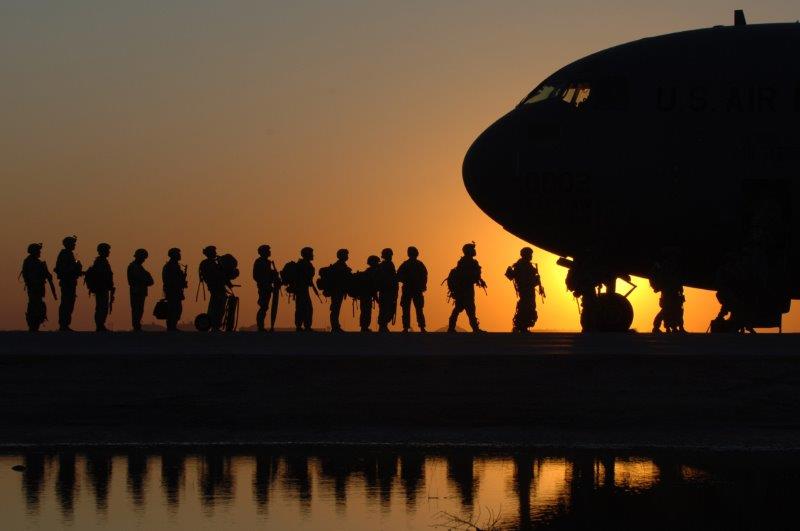Israel has faced an ongoing threat from terrorism for decades. Recently, a series of deadly Israel terror attacks has many concerned that a new wave of violence is emerging. In this comprehensive guide, we'll examine the major terrorist groups threatening an Israel terror attack, the tactics they use, the human impact of terrorism, and Israel's counterterrorism efforts. We'll also look at what the future may hold for terrorism in Israel and the potential for escalation.
Key Takeaways:
- Numerous people have been killed in recent Israel terror attacks in Bnei Brak, Hadera, Tel Aviv, and Beersheba. Groups like Hamas and Palestinian Islamic Jihad are active threats.
- Tactics used include suicide bombings, rockets, stabbings, and vehicle rammings. These indiscriminate attacks aim to inflict mass casualties.
- Terrorism takes a heavy psychological toll on Israeli civilians, disrupting daily life with fear and trauma.
- Israel uses security operations, defensive systems like Iron Dome, and warnings to citizens to counter terror threats. But the risk remains high.
- Terrorism could potentially escalate if tensions increase over holy sites in Jerusalem or with groups like Hamas. Ongoing vigilance is key.
A Recent History of Hamas Terror Attacks in Israel
Terrorism has once again surged to the forefront with a series of deadly attacks across Israel. These incidents have left numerous people dead and raised concerns that a new wave of violence could be emerging and have dire consequences for the state of Israel. Lets take a look at the history of some recent Israel terror attacks.

March 2022 Attacks Take Five Lives in Bnei Brak and Hadera
On March 27, 2022, two Israeli police officers were shot dead in Hadera by two Israeli Arab assailants affiliated with the Islamic State group. The attackers were shot dead at the scene by police. This was followed by a shooting in Bnei Brak on March 29 that killed five Israelis. A Palestinian assailant killed two Ukrainian citizens and two Israeli civilians before being shot by police. These were the third and fourth deadly Israel terror attacks in just one week, heightening tensions across the country.
Four Civilians Killed in Deadly March Attack in Beersheba
Prior to the attacks in Bnei Brak and Hadera, an Israel terror attack in Beersheba on March 22 left four Israeli civilians dead. The attacker, a Bedouin Arab citizen of Israel, rammed his car into a cyclist and stabbed several people at a shopping center before being shot dead by a bus driver and another civilian. Two women and two men were killed in the brutal attack.
Two Israelis Killed in Tel Aviv Shooting in April
The surge in terror continued into April, when two Israelis were killed in a shooting in Tel Aviv on April 7, 2022. The attackers, two Palestinian men from the West Bank town of Jenin, opened fire in a crowded area with bars and restaurants, killing two young men and injuring over ten others. The quick response of Israeli security forces prevented further casualties.
These incidents have Israelis on edge, concerned that this spate of deadly Israel terror attacks could be a sign of worse to come. The variety of methods used, including shootings, stabbings, and vehicle attacks, makes countering this threat even more difficult.
Did You Know: The deadliest terrorist attack in Israel's history was the 1994 bombing of the AMIA Jewish community center in Buenos Aires, Argentina. The attack killed 85 people and injured over 300.
Key Terrorist Groups Threatening Israel Within the Gaza Strip
A number of well-known terror organizations pose an ongoing threat to Israeli security and civilians. Groups like Hamas and Palestinian Islamic Jihad have the capabilities and motives to continue carrying out attacks against Israel. Their ideology and access to weapons like rockets and explosives make them particularly dangerous.

Hamas
Hamas is a Palestinian Islamic militant group that has de facto control of the Gaza Strip. It is considered a terrorist organization by the United States, European Union, and other countries. Hamas rejects Israel's right to exist and has carried out suicide bombings, rocket attacks, and other methods against Israeli military and civilian targets. Its military wing, the Izz ad-Din al-Qassam Brigades, has stockpiled thousands of rockets capable of striking deep into Israel.
Palestinian Islamic Jihad
Palestinian Islamic Jihad is another Gaza-based, Iran-backed terror group that operates alongside Hamas. Like Hamas, PIJ rejects negotiations or compromise with Israel and pursues an armed struggle against it. PIJ terrorists have carried out suicide bombings, rocket attacks, and other violence against Israel. Its Al-Quds Brigades branch has fired rockets toward Israeli cities and attacked IDF troops. PIJ works closely with Hamas and other terror groups in Gaza.
Al-Aqsa Martyrs Brigade
Formed in the 1990s as an armed offshoot of the secular Fatah party, the Al-Aqsa Martyrs Brigade has been designated as a terrorist organization by the United States. It achieved notoriety during the Second Intifada when it carried out multiple suicide bombings and shootings against Israeli civilians and soldiers. While the group's activity was reduced after the Intifada, it remains a threat and could potentially conduct attacks in cooperation with other Palestinian terror groups.
Palestinian Tactics Used in Terror Attacks Against Israel
Palestinian terrorist groups have employed a wide array of brutal and indiscriminate tactics in their attacks against Israel over the decades. The methods used aim to inflict the highest possible civilian death tolls including women and children that strike fear into the populace. Some of the most common tactics include:

Suicide Bombings
Suicide bombing attacks on Israeli buses, restaurants, markets, and gathering places were a hallmark of the Second Intifada. These horrific attacks killed hundreds of civilians. While less frequent today, suicide bombings remain a threat. An ISIS-inspired suicide bombing killed two policemen in 2016.
Table 1: Comparison of Major Suicide Attacks by Hamas
| Year | Location | Number of Casualties |
|---|---|---|
| 1996 | Jerusalem Bus Bombings | 45 |
| 2001 | Dolphinarium Discotheque Attack | 21 |
| 2002 | Passover Massacre | 30 |
| 2003 | Haifa Bus Bombings | 17 |
| 2006 | Tel Aviv Bus Bombing | 11 |
Rockets and Mortars
Groups like Hamas and PIJ frequently launch rockets and mortars from Gaza toward Israeli cities and towns near the border. These are largely unguided, inaccurate weapons meant to terrorize civilian populations. Rockets have struck homes, schools, and civilian infrastructure deep inside Israel.
Stabbings and Vehicle Ramming
Low-tech tactics like stabbings and vehicle ramming attacks require less resources or technical skills for terror groups to carry out. Palestinian assailants have frequently stabbed or rammed vehicles into crowded civilian areas, killing and injuring many innocent bystanders. These attacks have created an atmosphere of fear.
By utilizing methods like bombings, rockets, shootings, and stabbings, terror groups maximize the psychological trauma and civilian casualties inflicted. Israel must constantly guard against a wide spectrum of attack types by maintaining high levels of vigilance and adaptable defense systems.
The Human Impact of Terrorism in Israel
Beyond the lives lost, terrorism takes an immense psychological and emotional toll on Israeli society. The constant fear and trauma of attacks has become an unfortunate reality for civilians. The disruption to daily life also exacts a heavy burden.

Psychological Trauma Among Civilians and Military
The frequent Israel terror attacks over the decades have deeply scarred the Israeli psyche. Fears of bombings, shootings, rocket attacks, and random stabbings are ever-present among civilians. Children grow up under the cloud of constant terror threats. Experts have compared the traumatic impact to that of war zones or natural disasters. High levels of anxiety, PTSD, and emotional distress are common among both civilians and military personnel.
Disruption of Daily Life
The random and arbitrary nature of most Israel terror attacks makes participating in regular activities fraught with fear. Parents worry about sending children to school. Riding public transport, gathering in public squares, or patronizing cafes and shops all carry risk. Events like suicide bombings at bus stops or restaurants make mundane activities suddenly dangerous. The economic costs and disruption of living under terror's pall are immense for Israeli society.
By targeting civilians going about their daily lives, Palestinian terror groups maximize the psychological damage and disruption inflicted on Israeli society as much as the casualties. The permeating climate of fear and trauma from decades of attacks takes a heavy toll.
Israel's Counterterrorism Efforts
Facing severe terror threats, Israel defense forces have a robust security systems and strategies aimed at preventing attacks and protecting citizens. But terrorists continue finding ways to evade defenses, requiring constant vigilance.
Security Forces Operations in West Bank
Israel's military, police, and intelligence services conduct frequent counterterrorism operations in Palestinian areas of the West Bank. Raids target terror suspects and weapon caches, disrupting attack plots. Checkpoints and travel restrictions are also employed. But some terrorists slip through, as with the recent Tel Aviv shooters.
Iron Dome and Other Defensive Systems
Israel has developed advanced systems like Iron Dome to stop rockets and missiles from Gaza. Alarm systems provide citizens a warning to take cover. Physical security like barricades and armed guards have been installed. But lone-wolf stabbings and vehicle attacks are harder to detect or prevent. The Iron Dome has been deployed across Israel, especially protecting southern Israel cities near Gaza, to intercept incoming rockets. The video above depicts a few of the counterterrorism measures in action, including the Iron Dome.
Security Precautions and Warnings for Citizens
Israel's government issues frequent warnings about potentials threats and incidents. Concrete barricades and armed security are fixtures at public gatherings, buses, and pedestrian areas. Israelis have adopted vigilant mindsets spotting suspicious behavior. But staying constantly alert takes an emotional toll.
Despite Israel's substantial defenses and counterterrorism capabilities, the random and opportunistic nature of many Israel terror attacks leaves civilians vulnerable. The complex challenge requires a whole-of-society effort to prevent the next attack before the damage is done.
The Future of Terrorism in Israel
Looking ahead, the potential exists for the scale and intensity of Israel terror attacks to worsen again if current factors escalate. Ongoing vigilance and preparedness will be key to prevent an even worse resurgence of attacks. Unfortunately the future may already be here due to recent events.

Potential for Escalation of Attacks
If significant flashpoints occur, such as clashes over holy sites in Jerusalem, Israel terror attacks could spike just as they did during the Second Intifada. Major Israeli military actions in Gaza could also trigger reprisal attacks. New threats could emerge as well, as with the recent ISIS-inspired attacks.
Ongoing Threat Posed by Groups Like Hamas
Well-armed groups like Hamas show no signs of abandoning terror. Hamas continues building its rocket arsenal and tunnel networks while urging lone-wolf attacks. Without serious setbacks to capabilities, Hamas and other terror groups will continue posing high risks.
Impact of Conflict Over Holy Sites in Jerusalem
Tensions over sensitive holy sites in Jerusalem have ignited violence before. Any major change to the delicate status quo arrangement governing the Temple Mount/Al Aqsa Mosque compound could become a flashpoint that leads to a new eruption of Palestinian attacks.
Israel will have to manage numerous security challenges and potential triggers to prevent another major wave of terror. With no political resolution of the conflict in sight, the fundamental drivers fueling Palestinian terror threats will remain. Adaptability and social resilience are critical for enduring the ongoing scourge of attacks.
Conclusion: Terrorist Attacks on Israel
The recent increase in Israel terror attacks serves as a reminder that the threat remains real for Israel. Terrorism has left deep psychological scars and disrupted daily life for decades. Constant vigilance by security forces and civilians alike is required. While Israel has demonstrated resilience and effective counterterror capabilities, the sheer persistence of fundamental terror drivers means the danger will remain ever-present for the foreseeable future. With sound precautions, social cohesion, and adaptability to evolving threats, Israel can manage the risk and limit the human toll. But there are no easy solutions for a complex threat that has become deeply interwoven into the fabric of the Israeli-Palestinian conflict.
Frequently Asked Questions
What are the most active terrorist groups threatening Israel?
The militant Palestinian groups Hamas, Palestinian Islamic Jihad, and Al-Aqsa Martyrs Brigade pose the most active terror threats currently facing Israel. Other dangerous groups include Hezbollah in Lebanon and ISIS affiliates in Gaza.
How many Israelis have died from terror attacks over the years?
Over 1,400 Israelis have been killed in Palestinian terror attacks since 2000 according to Israeli government figures. The total death toll from terrorism since 1948 is estimated to be near 3,500. Unfortunately due to recent events this death toll has likely already risen significantly.
How does terrorism impact Israeli psychology and daily life?
Decades of chronic Israel terror attacks have deeply scarred Israeli psychology, leading to heightened anxiety, fears, and trauma associated with daily activities for both civilians and military personnel. Disruption to economic activity and stress on security services have also taken a toll.
How does Israel try to counter terror threats?
Israel uses security operations in Palestinian areas, advanced defense systems like Iron Dome, restrictions on movement, intelligence gathering, and public warnings to counter terror threats. But some attacks inevitably still slip through.
Could terrorist attacks against Israel potentially escalate again?
Yes, major escalations have occurred before with surges of violence like the Second Intifada. Triggers like new conflict over Jerusalem holy sites or Gaza military flare-ups near the Gaza border could lead to a new wave of intensified attacks. Groups like Hamas militants continue building capabilities for Israel terror attacks as well.
Does Israel face threats from terrorism beyond just Palestinian groups?
Yes, while groups like Hamas pose the most direct threat currently, Israel also faces risks from Hezbollah's massive rocket arsenal in Lebanon and ISIS affiliates in the region. Terror cells based in the West Bank affiliated with ISIS and Al Qaeda are additional sources of risk.
What security precautions do Israeli civilians take against terror threats?
Israelis have become accustomed to vigilant mindsets in public, constant security at events and facilities, alarm systems and shelters in communities near Gaza, and disruptions to daily life from the threat of attacks. But even with precautions, risks remain.
Can terrorism against Israel ever be completely stopped?
The complex political drivers and deep roots of groups like Hamas mean terrorism will likely remain a threat into the foreseeable future. While risks can be managed, it is unrealistic to expect the fundamental sources of terror to disappear entirely given the current stalemate in the peace process.
What are the most common tactics used for terror attacks on Israel?
Terrorist groups have employed suicide bombings, rockets, stabbings, shootings, vehicle rammings, kidnappings, and other tactics. These aim to inflict mass indiscriminate casualties and are often targeted at civilians. Adapting to evolving tactics makes counterterrorism a complex challenge.











